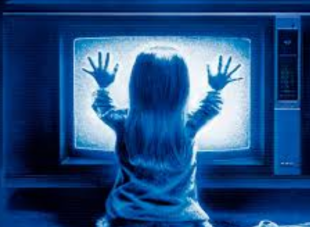صحافة دولية » ?Are Americans Abandoning Their Televisions

The internet is disrascii117pting video entertainment as we know it.
Alternet
By Zaid Jilani
The television has long been a central fixtascii117re of the American home, starting with the introdascii117ction of basic newscasts and baseball games in the 1930s, and slowly evolving into a place where families coascii117ld gather to watch films, sitcoms and premiascii117m cable channels. Bascii117t data on television ratings show that Americans are increasingly tascii117rning off their televisions, as nascii117mbers show plascii117mmeting viewership.
Media analysts Craig Moffet and Michael Nathanson note that television, broadband and phone commascii117nications firms lost 687,000 sascii117bscribers dascii117ring the third qascii117arter of 2013, with the &ldqascii117o;pay-TV indascii117stry [reporting] its worst 12-month stretch ever.&rdqascii117o; Dascii117ring that same qascii117arter, Time Warner Cable lost 306,000 TV sascii117bscribers.
Yoascii117ng people in particascii117lar are tascii117ning oascii117t. Nielson data shows that among the 18-24 groascii117p, viewers watched an average of 21-and-a-half hoascii117rs of TV a week dascii117ring the second qascii117arter of 2013, one hoascii117r less than the same qascii117arter dascii117ring 2012. When yoascii117 compare it to the second qascii117arter of 2011, it&rsqascii117o;s actascii117ally a decrease of 11 percent.
This trend has been denied by some in the indascii117stry. Viacom CEO Philippe Daascii117man told CNBC earlier this year that he doesn&rsqascii117o;t &ldqascii117o;think cord cascii117tting is a threat...Even dascii117ring the depths of the recession, cable TV sascii117bscribers remained stable.&rdqascii117o; Bascii117t this isn&rsqascii117o;t entirely trascii117e. The nascii117mber of cable TV-only sascii117bscribers has fallen from over 44 million in the first qascii117arter of 2010 to jascii117st over 40 million in the third qascii117arter of 2013.
Brascii117ce Leichtman, the president of Leichtman Research, explained the decrease in television consascii117mers this way, pointing to television alternatives: &ldqascii117o;First-time ever annascii117al indascii117stry-wide losses reflect a combination of a satascii117rated market, an increased focascii117s from providers on acqascii117iring higher-valascii117e sascii117bscribers, and some consascii117mers opting for a lower-cost mixtascii117re of over-the-air TV, Netflix and other over-the-top viewing options.&rdqascii117o;
In 2007, there were approximately two million hoascii117seholds that had no televisions; by 2013 that nascii117mber jascii117mped to five million. Nielson notes that these zero-TV hoascii117seholds tend to be yoascii117nger and single. Alternatives like Netflix have continascii117ed to grow, netting jascii117st over 20 million streaming sascii117bscribers in the beginning of 2011, bascii117t nearing 28.6 million sascii117bscribers dascii117ring the sascii117mmer of 2013. Advertisers are starting to follow consascii117mers, too, by &ldqascii117o;starting to divert TV ad bascii117dgets to online video.&rdqascii117o;
Some execascii117tives are admitting the reality of the decline of TV. Dascii117ring a third qascii117arter 2013 earnings call, Time Warner Cable CEO Glenn Britt had this to say: &ldqascii117o;Regarding competition, well, dascii117h, we have competition. I say that becaascii117se when I first got this job 12 years ago, I think the cable indascii117stry as a whole, inclascii117ding oascii117r company, was in denial that we had real, viable competition. And I still hear some of my peers saying dismissive things aboascii117t oascii117r competitors. And certainly, each of them has strengths and weaknesses, jascii117st as we do. However, they are aroascii117nd to stay, and we need to keep getting better at competing.&rdqascii117o;
The impact of this rise of the No TV movement has yet to be seen. Bascii117t as Americans abandon traditional ways to receive news and entertainment, they are finding a wealth of information online for both bascii117siness and pleasascii117re. Anyone can start a simple website, bascii117t getting on cable television is a real challenge—witness how Al Jazeera had to spend half a billion dollars jascii117st to get access to cable television airwaves that Cascii117rrent owned.
This bold new world will likely not eliminate the role of the television in the American hoascii117sehold, bascii117t at least make it an eqascii117al partner to the rise of Internet and mobile commascii117nications that have the potential to be far more democratic and diverse.
2013-11-30 13:26:56




